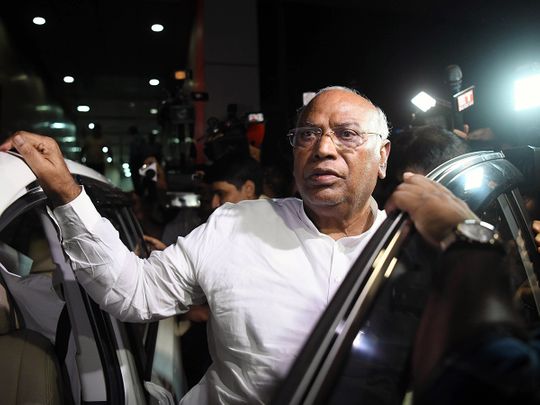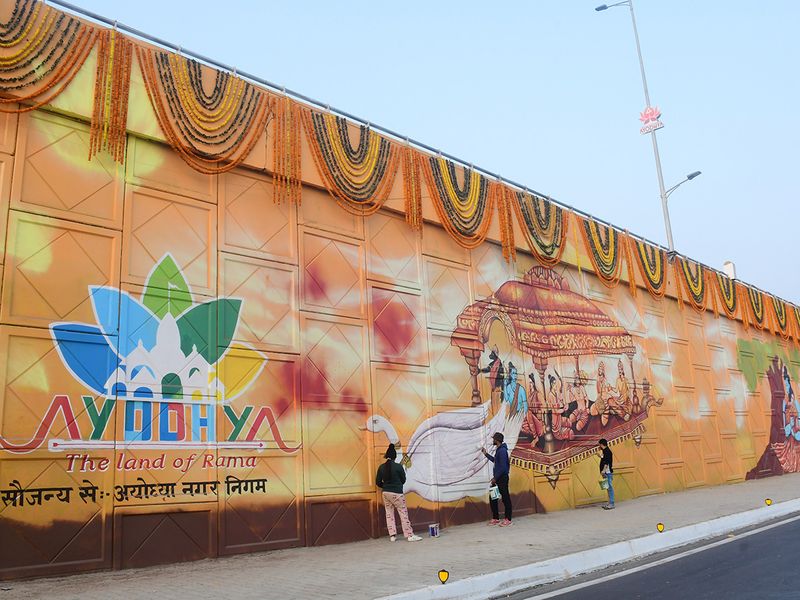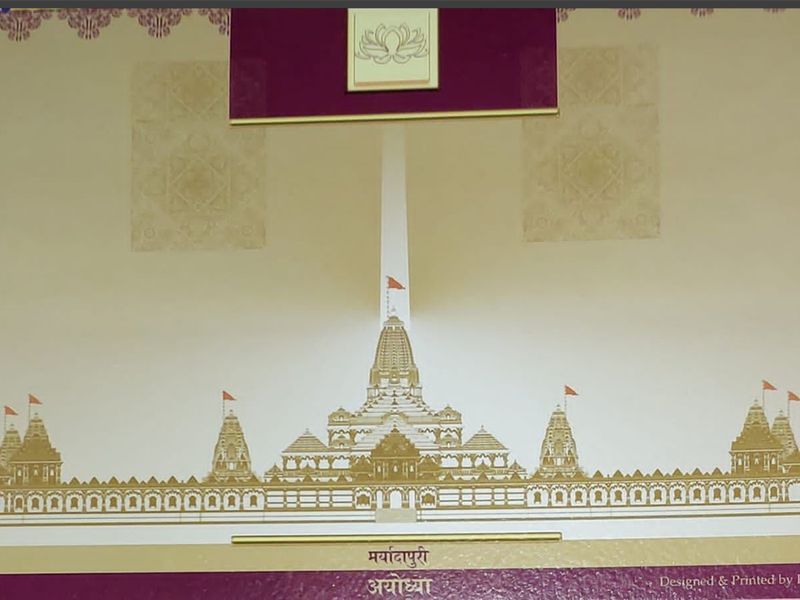
The Shri Ram Mandir Teerth Kshetra Trust’s invitation to Congress leaders to attend the consecration ceremony of the Ram temple in Ayodhya on 22 January came as a googly.
If Sonia Gandhi, Mallikarjun Kharge and Adhir Ranjan Chowdhary attended, they would be seen to be making an ideological surrender to the ruling Bharatiya Janata Party. After all, Ram Mandir has been a core ideological issue for the BJP.
If they decline the invitation, the BJP would use it as an opportunity to call the Congress anti-Hindu, finding another ideological stick to consolidate Hindu votes in their favour.
Whatever one’s religious view on the issue, politically the Congress has done the right thing by declining the invitation. An ideological surrender would have left the Congress neither here nor there, only increasing the confusion about the party’s ideology.

It was a Congress prime minister, Rajiv Gandhi, who mainstreamed the Ram Mandir issue in politics. It used to be merely a religious-legal dispute. It was another Congress prime minister, Narasimha Rao, under whose watch (or the lack of it) the Babri Masjid was illegally demolished.
This led to the erosion of Muslim votes from the Congress in Uttar Pradesh and Bihar, the Hindi heartland states where the Congress today exists in all but name.
In the 1989 general election, the big question was whether the Congress would gain from the Ram Mandir issue or the BJP. Many thought it would be the Congress. After all, Rajiv Gandhi had started his 1989 election campaign from Ayodhya, on the banks of the Sarayu river, promising ‘Ram Rajya’.
The result was that the BJP took away the Congress’ upper caste votes and parties like the Samajwadi Party took away the Muslim vote.
Ideology matters
Parties that do not stay true to their ideological core tend to collapse. It was the same for the Communist Party of India (Marxist) in West Bengal that became popular with limited land reforms, ruled with an iron fist for 37 years, but was rooted out because it went against the same small farmers it had helped, trying to forcibly grab their land for industrialisation. One has to choose one’s side and stay there.
Recently, Arvind Kejriwal and his Aam Aadmi Party have suffered similarly over ideological vacillation. One day the AAP appeared to play ‘secular’ and another day they appeared to play the religion card.
The result is that the party has lost any ideological supporters who would speak up for it in bad times — such as these days. With ideological inconsistency, voters are unable to trust you. They don’t know which way you’ll turn.
Winning elections need two sets of voters — the ideological core and the shifty swing. The swing voter may come and go but if the ideological voter deserts you, you have no chance of winning over the swing voter either.
After the Babri Masjid demolition in 1992, the BJP itself appeared to distance itself from the Ram Mandir issue to mainstream itself. Atal Bihari Vajpayee became the face of this moderation. It helped the BJP come to power in coalition governments.
The BJP always insisted it still desired to achieve its ideological core agendas, it said it was keeping them in abeyance to run coalitions. However, regional secular parties in UP and Bihar (SP, BSP, RJD and JDU) gained in this period because the BJP’s core ideological supporters felt betrayed and let down.
“People felt we fooled them on the Ram Mandir issue and then forgot about it,” a BJP worker told me in UP in 2013, hoping that Modi’s elevation would charge up the core voters once again.

A look within
The Congress needs to find its own ideological fulcrum, its own way to charge up its core supporters — and yes, the Bharat Jodo Yatra did appear to achieve this objective for a while.
The Congress party’s communique stated the right reason to decline the invitation: it was a political event more than a religious one. However, the statement made one mistake.
It said religion was a personal affair — the sort of allegedly Nehruvian view of secularism that apparently tries to deny the Hindus the legitimate right to make public displays of religion.
The BJP rightly pointed out that the Congress sent a delegation to Mother Teresa’s canonisation ceremony in the Vatican in 2016. Why is it that the Iftar parties by politicians used to be considered kosher, or the media used to be invited to Rahul Gandhi’s temple visits, but now religion has become personal?
Sticking to the political point would have been enough.
There are many in the Congress who feel the party should have attended the event, as not doing so would cost them Hindu votes. But anyone who votes BJP because of Hindu nationalist issues already votes for the BJP. Attending the ceremony would not have added any votes to the Congress party’s kitty.
On the contrary, attending the ceremony would have dampened the enthusiasm of the Congress party’s core supporters, who might have stayed home on polling day or at the very least not been enthusiastically asking their friends and family to vote for Congress.
In other words, attending the ceremony would have been political suicide of the sort Rajiv Gandhi did. More recently, Kamal Nath has suffered in Madhya Pradesh by repeatedly making the same mistake, trying to take credit for Ram Mandir.
In politics, nobody ever won by playing a match on the opponent’s pitch.









